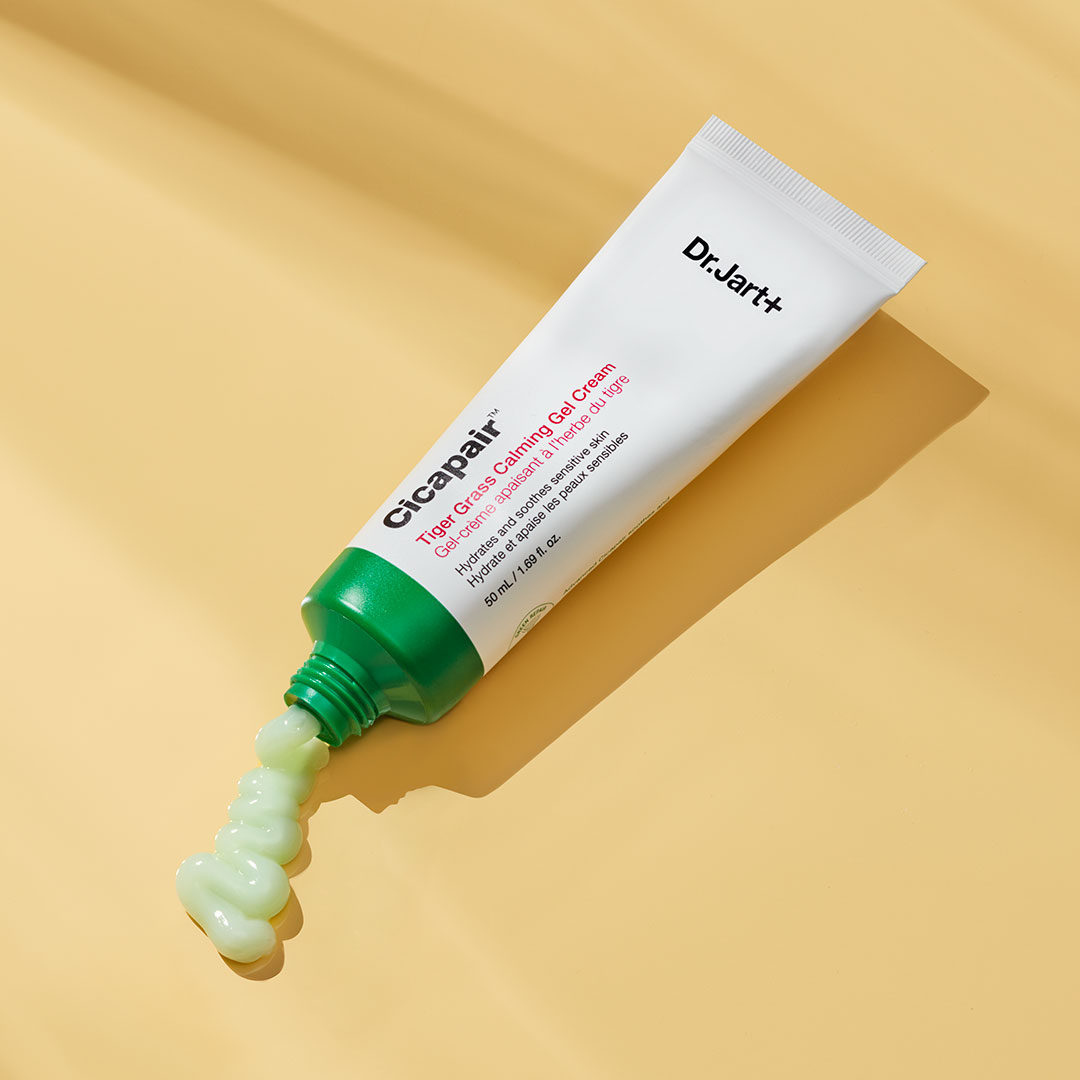Skin burning after applying skincare can be alarming. It often raises questions about product safety and skin health.
Many people experience a burning sensation when they use certain skincare products. This feeling can happen for various reasons, including skin sensitivity, active ingredients, or allergic reactions. Understanding why your skin reacts this way is essential for maintaining healthy skin.
It helps you choose the right products and avoid irritation. This guide will explore common causes of skin burning after applying skincare. We will also offer tips to soothe your skin and prevent future discomfort. Knowing the reasons behind this sensation can help you make informed decisions about your skincare routine.
Sudden Skin Discomfort
Many people feel a sudden burning sensation after applying skincare products. This discomfort can be alarming. It may signal something is wrong. Understanding why this happens is key to finding relief.
The Sensation Of Burning
The burning feeling can vary from mild to intense. Some describe it as a tingling or stinging. This sensation often occurs right after application. Skin may feel hot or sensitive. It can make you worry about your skincare choices.
Identifying Immediate Triggers
Identify what caused the burning. Certain ingredients can trigger reactions. Products with alcohol or fragrances often lead to discomfort. Exfoliating acids like glycolic or salicylic acid can irritate sensitive skin. Allergies to specific ingredients may also be a factor.
Check if your skin is already damaged or dry. This can heighten sensitivity. Consider your environment too. Extreme weather or pollution can irritate skin further. Always patch test new products to avoid surprises.

Credit: natalieoneilll.com
Ingredients That Irritate
Many people experience a burning sensation after applying skincare products. This reaction often comes from specific ingredients in those products. Understanding what these irritants are can help you make better choices for your skin.
Common Irritants In Skincare
Some ingredients are known to cause irritation. Here are a few common irritants:
- Alcohol: Can dry and irritate skin.
- Fragrance: Often included for scent, it can cause reactions.
- Acids: Products with glycolic or salicylic acid may sting.
- Retinoids: Powerful but can lead to redness and burning.
- Essential Oils: Natural but may trigger sensitivities.
Allergens Vs. Irritants
Understanding the difference between allergens and irritants is important.
| Aspect | Allergens | Irritants |
|---|---|---|
| Definition | Substances that cause an allergic reaction. | Substances that cause skin irritation. |
| Response Time | Delayed response, may take days to appear. | Immediate reaction, often within minutes. |
| Common Sources | Fragrance, certain preservatives. | Alcohol, strong acids, harsh cleansers. |
| Symptoms | Itching, swelling, redness. | Burning, stinging, dryness. |
Knowing the difference helps you choose products wisely. Always read labels. Avoid irritants for a healthier skin experience.
Skin Sensitivity Factors
Many people experience a burning sensation after applying skincare products. Understanding the factors behind skin sensitivity helps identify the cause. Two main factors include skin type and environmental stressors. Let’s explore these factors in detail.
Role Of Skin Type
Your skin type plays a crucial role in sensitivity. Here are common skin types:
| Skin Type | Description |
|---|---|
| Normal | Balanced moisture and oil levels. Less prone to irritation. |
| Dry | Often tight and flaky. More sensitive to products. |
| Oily | Shiny appearance with larger pores. May react to heavy products. |
| Combination | Mix of dry and oily areas. Sensitivity varies by area. |
| Sensitive | Prone to redness and irritation. Requires gentle products. |
People with sensitive skin often react strongly to new products. Ingredients like alcohol and fragrance can cause discomfort. Always patch test new products on a small area.
Impact Of Environmental Stressors
Environmental factors can heighten skin sensitivity. Here are common stressors:
- Pollution: Harmful particles irritate the skin.
- Weather: Extreme cold or heat can cause reactions.
- Sun Exposure: UV rays can damage skin and increase sensitivity.
- Humidity: High levels can lead to breakouts and irritation.
- Indoor Air Quality: Dry indoor air can strip moisture.
Protecting your skin from these stressors is essential. Use sunscreen daily. Consider a humidifier in dry environments. Always choose skincare products suited for your skin type.
Product Interaction And Reactions
Understanding product interaction and reactions is key to skincare. Many factors can cause skin burning. Two main areas to consider are layering products and chemical incompatibilities. Let’s explore these factors.
Layering Skincare Products
Layering products is common in skincare routines. It can lead to skin irritation. Each product has its own ingredients. Some ingredients do not mix well together. This can cause a burning sensation on the skin.
For example, applying a strong acid followed by a retinol can be harsh. The skin might react negatively. It’s best to apply products that work well together. Always wait a few minutes between layers. This can help reduce irritation.
Chemical Incompatibilities
Chemical incompatibilities are another cause of skin burning. Certain ingredients can conflict with each other. Mixing them can create harmful reactions. For instance, combining vitamin C with benzoyl peroxide may cause irritation.
Understanding ingredient compatibility is important. Check product labels carefully. Avoid using incompatible products on the same day. This can keep your skin calm and healthy.
The Role Of Skin Barrier
Your skin barrier is your first line of defense. It protects you from harmful elements. A healthy barrier keeps moisture in and irritants out. When it’s strong, your skin feels smooth and comfortable. But what happens when it’s compromised?
A damaged skin barrier can lead to discomfort. You may feel burning or stinging after applying skincare products. Understanding this can help you care for your skin better.
Compromised Barrier Symptoms
Signs of a compromised barrier are clear. You may notice redness or dryness. Your skin might feel tight or itchy. These symptoms often mean your barrier is weak.
Burning sensations can occur too. Products that once felt good may now irritate your skin. This indicates that your skin is not protecting itself well.
Protecting Your Skin Barrier
Protecting your skin barrier is essential. Start with gentle cleansers. Avoid harsh ingredients that can strip moisture.
Use moisturizers that help repair the barrier. Ingredients like ceramides and hyaluronic acid work well. They lock in hydration and soothe irritation.
Avoid over-exfoliating. This can damage the barrier further. Limit exfoliation to once or twice a week.
Lastly, always wear sunscreen. UV rays can weaken your skin barrier. Protect it daily for long-lasting health.

Credit: graziamagazine.com
Allergic Contact Dermatitis
Allergic contact dermatitis is a skin reaction. It happens when the skin touches a substance that causes an allergic response. Common triggers include certain creams, lotions, and makeup products. Symptoms can include redness, itching, and burning. This reaction can occur immediately or after repeated exposure. Understanding this condition is important for healthy skin.
Identifying Allergic Reactions
Identifying allergic reactions starts with paying attention to your skin. Look for signs like redness and swelling. Burning or stinging sensations are also key indicators. Keep track of new products you use. Write down any symptoms that appear after use. This helps you spot patterns and potential allergens.
Patch Testing For Allergies
Patch testing is a way to identify specific allergens. A dermatologist applies small amounts of different substances to your skin. They then monitor your skin for reactions over several days. This test helps pinpoint what triggers your allergic contact dermatitis. Knowing your allergens can guide you in choosing safe skincare products.
Medical Conditions And Skin Burning
Skin burning after applying skincare products can be concerning. Sometimes, it hints at underlying health issues. Understanding these conditions is important. They may explain why your skin reacts this way. Knowing the signs can help you take action.
Underlying Health Issues
Several health issues can cause skin burning. Allergies are common. Your skin may react to certain ingredients. This reaction can lead to a burning sensation.
Another issue is eczema. Eczema makes skin sensitive and reactive. Using certain products can worsen the burning feeling.
Psoriasis can also be a cause. It leads to dry, irritated skin. Applying products can trigger burning or discomfort.
Infections may be another reason. Bacterial or fungal infections can irritate skin. This irritation can feel like burning after applying skincare.
When To See A Doctor
Not all skin burning requires a doctor. Mild reactions can usually be treated at home. However, see a doctor if burning persists.
Seek help if you notice swelling or redness. These may indicate a more serious reaction. Also, consult a doctor if you experience pain. Pain can signal an underlying problem.
Trust your instincts. If something feels wrong, get professional advice. Early intervention can prevent further issues.
Navigating Skincare Safely
Taking care of your skin is important. Using the wrong products can lead to burning or irritation. Understanding how to choose and use skincare products helps keep your skin healthy. Here are some tips for navigating your skincare safely.
Choosing The Right Products
Select products that match your skin type. Oily, dry, or sensitive skin needs different care. Read the labels carefully. Avoid products with harsh chemicals or strong fragrances. Look for gentle, soothing ingredients. Natural ingredients often work better for sensitive skin.
Start with simple products. A mild cleanser and a basic moisturizer can be enough. As your skin adjusts, you can add more products. Always check for allergies or sensitivities. Patch testing a new product can prevent burning.
Introducing New Skincare
Introduce new skincare products slowly. Start with one product at a time. This way, you can see how your skin reacts. Wait a few days before adding another product. If you feel burning or irritation, stop using it.
Keep a skincare journal. Write down what you use and how your skin responds. This helps identify which products work for you. Remember, your skin needs time to adjust. Be patient and gentle with your routine.
Home Remedies And Soothing Techniques
Skin burning after applying skincare can be uncomfortable. Many people seek quick relief. Home remedies can help soothe your skin. These methods use natural ingredients. They are gentle and effective.
Immediate Relief Measures
Start with cool water. Rinse your face gently. This helps calm the burning sensation. Pat your skin dry with a soft towel.
You can apply a cold compress. Use a clean cloth soaked in cold water. Place it on the affected area for 10 minutes. This reduces inflammation and cools the skin.
Aloe vera gel is another quick fix. It hydrates and cools the skin. Apply a thin layer to the burned area. Let it absorb fully.
Natural Ingredients For Sensitive Skin
Oatmeal is a great option. It has soothing properties. Mix oatmeal with water to make a paste. Apply it to your skin for relief.
Honey also works well. It has natural healing properties. Spread a thin layer on the affected area. Leave it on for 20 minutes before rinsing.
Coconut oil is moisturizing. It can help repair damaged skin. Apply a small amount to soothe and hydrate.
Yogurt is another soothing ingredient. It contains probiotics and lactic acid. Apply plain yogurt to calm irritation. Rinse after 15 minutes.

Credit: natalieoneilll.com
Prevention And Long-term Care
Taking care of your skin is essential. Prevention is better than cure. If your skin burns after applying products, you need a good routine. Long-term care helps maintain healthy skin. It reduces irritation and promotes healing.
Routine For Sensitive Skin
Create a gentle skincare routine. Choose products designed for sensitive skin. Look for items that are fragrance-free and hypoallergenic. Use a mild cleanser to avoid irritation.
Limit the number of products you use. Stick to the basics: cleanser, moisturizer, and sunscreen. Avoid harsh scrubs and exfoliants. These can make your skin feel worse.
Importance Of Patch Testing
Always perform a patch test before using new products. Apply a small amount on your wrist or behind your ear. Wait 24 hours to see if any reaction occurs.
Patch testing helps prevent burning and irritation. It allows you to know how your skin reacts. This simple step can save you from discomfort later.
Frequently Asked Questions
Why Does My Skin Feel Hot After Skincare?
Burning sensations can occur due to various reasons. Common culprits include active ingredients like retinol or alpha hydroxy acids. Allergic reactions or sensitivity to certain products may also cause this sensation. If discomfort persists, consider consulting a dermatologist for personalized advice and recommendations.
Is Skin Burning A Sign Of Irritation?
Yes, skin burning often indicates irritation. This can result from over-exposure to active ingredients or using products unsuitable for your skin type. It’s essential to identify the cause and adjust your skincare routine accordingly. If irritation continues, seek professional help to prevent further damage.
How Can I Soothe Burning Skin?
To soothe burning skin, first, stop using the irritating product. Apply a gentle, hydrating moisturizer to calm your skin. Cold compresses can also provide immediate relief. Avoid harsh ingredients until your skin heals, and consider patch testing new products in the future to prevent irritation.
Should I Stop Using My Skincare Products?
If your skin burns after application, it’s wise to reassess your routine. Identify which product caused the reaction and stop using it. Over time, your skin may build tolerance, but prioritize gentle, hydrating formulas during recovery. Consult a skincare professional for tailored advice if needed.
Conclusion
Experiencing a burning sensation after applying skincare can be concerning. It may indicate an allergic reaction or sensitivity to certain ingredients. Always check the product labels for potential irritants. Patch testing new products helps prevent adverse reactions. Consult a dermatologist if the burning persists or worsens.
Taking care of your skin is important. Understanding your skin’s needs leads to better choices. Be gentle and patient with your skincare routine. Healthy skin is the goal. Prioritize products that suit your skin type for the best results.







